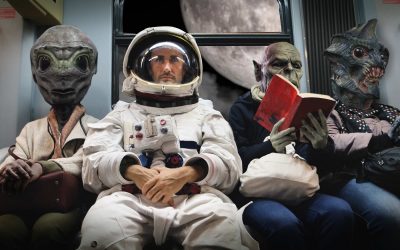American violence: The sad racial history behind why mass shooters tend to be young White men
By Colin Kohlhaas, Doctoral Candidate, History, Binghamton University, State University of New York In recent years, the United States has seen a surge of White Supremacist mass shootings against racial minorities. While not always the case, mass shooters tend to be...
Middleman strategy: Türkiye faces competing pressures to pick a side on Russia’s war in Ukraine
By Ozgur Ozkan, Visiting Professor of International Studies, Tufts University From the beginning of the war in Ukraine, Türkiye has performed a delicate balancing act, portraying itself as an ally to the warring sides while reaping economic and political benefits...
A geopolitical transition: Why Ukraine’s push for NATO membership is rooted in its European identity
By Kateryna Shynkaruk, Senior Lecturer of International Relations, Texas A&M University During a meeting with the nation’s diplomatic corps, President Volodymyr Zelenskyy gave Ukraine’s ambassadors their marching orders for the rest of the year: Work to help...
Why it is nearly impossible for disabled people to get support when experiencing homelessness
By Beth Stone, Lecturer, social policy, University of Bristol; and Emily Wertans, PhD candidate, criminology, University of Leicester Homelessness is reaching record highs in the UK. The latest statistics on statutory homelessness show that in March 2023, 104,510...
Beyond a bunk and a meal: How shelters help provide homeless people with a quiet refuge of privacy
By Natalie Florence, PhD Candidate in Humanitarian Design and Infrastructure Studies, Arizona State University; Heather Ross, Clinical Associate Professor in Nursing and Clinical Associate Professor, School for the Future of Innovation in Society, Arizona State...
Political will: How trust and mistrust will determine if a cease-fire in Gaza is possible
By Laurie Nathan, Professor of the Practice of Mediation, University of Notre Dame Calls for a cease-fire and other limits on military operations and violence were made by governments, advocacy groups, and political leaders around the world almost immediately after...
Why the Green Revolution is not a blueprint for feeding a hungry planet but a dire warning
By Glenn Davis Stone, Research Professor of Environmental Science, Sweet Briar College Feeding a growing world population has been a serious concern for decades, but today there are new causes for alarm. Floods, heat waves and other weather extremes are making...
Toxic Contamination: Legacy of the nuclear arms race leaves staggering cleanup costs at home
By William J. Kinsella, Professor Emeritus of Communication, North Carolina State University Christopher Nolan’s film “Oppenheimer” has focused new attention on the legacies of the Manhattan Project – the World War II program to develop nuclear weapons. As the...
Slow violence of contamination: The importance of shining a light on hidden toxic histories in America
By Elizabeth Kryder-Reid, Chancellor’s Professor of Anthropology and Museum Studies, Indiana University Indianapolis proudly claims Elvis’ last concert, Robert Kennedy’s speech in response to Martin Luther King Jr.’s assassination, and the Indianapolis 500....
Why sci-fi books can help kids better understand science yet remain scarce resources in schools
By Emily Midkiff, Assistant Professor of Teaching, Leadership, and Professional Practice, University of North Dakota Science fiction can lead people to be more cautious about the potential consequences of innovations. It can help people think critically about the...
$68B SEO industry under threat as Google, Bing, and other search engines embrace generative AI
By Ravi Sen, Associate Professor of Information and Operations Management, Texas A&M University Google, Microsoft, and others boast that generative artificial intelligence tools like ChatGPT will make searching the internet better than ever for users. For...
AI Jesus: Latest chatbot iteration turns Christian messiah into an internet guru
By Joseph L. Kimmel, Part-Time Faculty Member (Theology Department), Boston College Jesus has been portrayed in many different ways: from a prophet who alerts his audience to the world’s imminent end to a philosopher who reflects on the nature of life. But no one has...






















